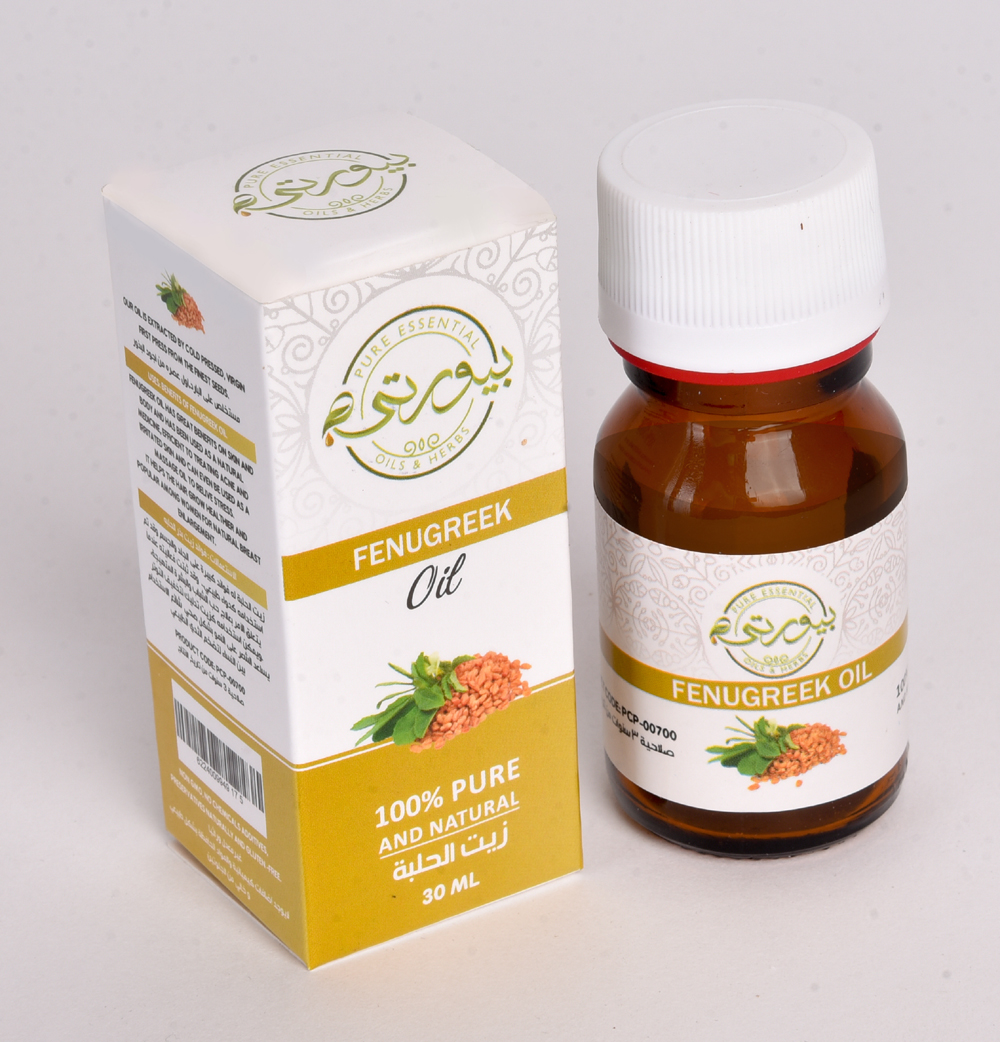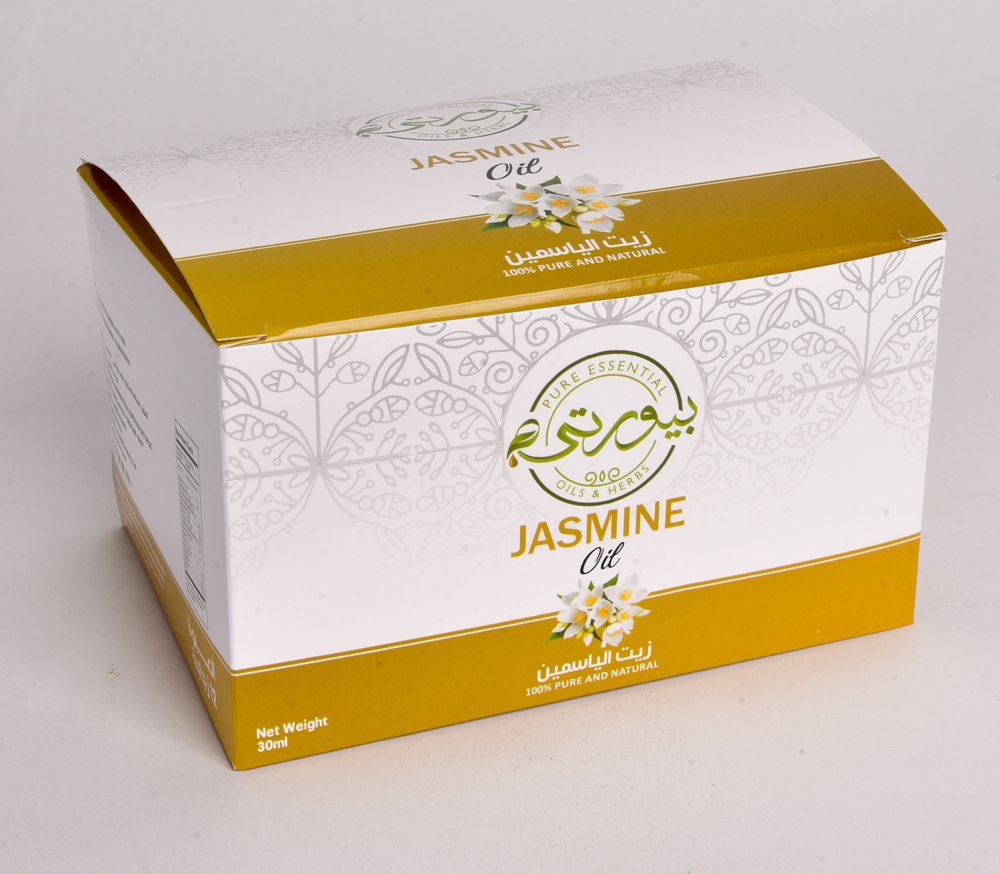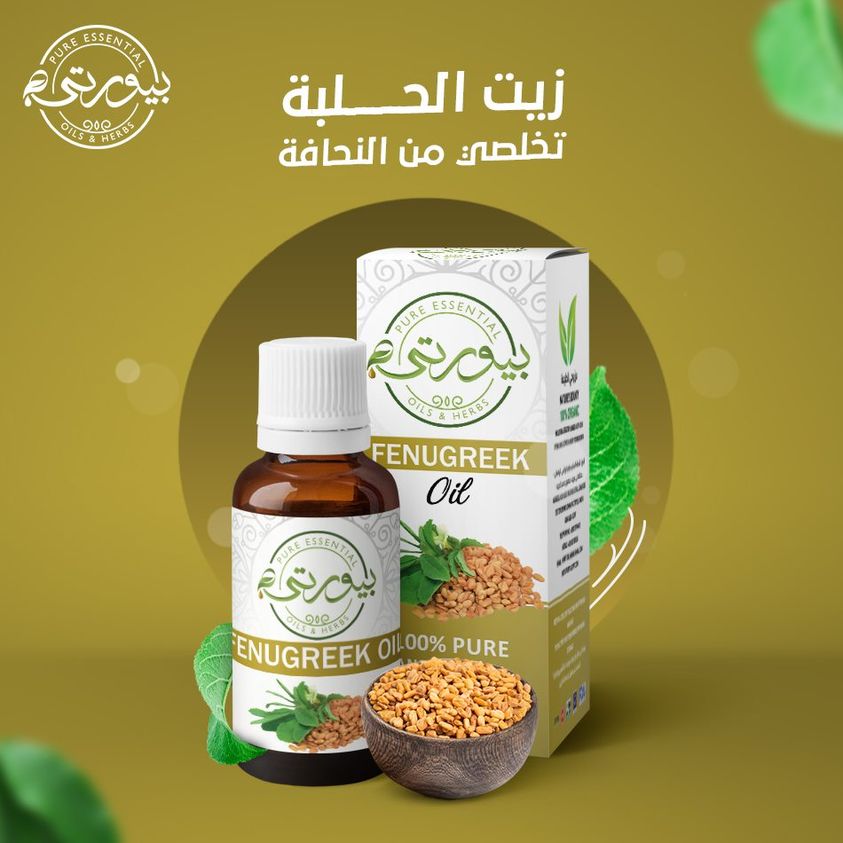Jasmine Infused Oil (Natural Jasmine oil or flowers infused in Carrier Oil)
Login to view prices
Jasmine infused Oil, consists of a carrier oil that has been permeated (“infused”) with Jasmine essential oil or flowers. The benefit to using an infused oil as opposed to a plain carrier oil is that the infused oil will contain the properties of both the carrier oil and Jasmine essential oil or flowers and is suitable for direct use for consumer without lot of precautions like concentrated Jasmine essential oils
Please read full details and benefits of Jasmine infused Oil Below
This Product for Consumer Retail packaging. if you are interested in Bulk Packaging to buy the oil as raw material, Please browse our Raw Materials and B2B Category
What is Infused Oil?
An infused oil, also referred to as a macerated oil, consists of a carrier oil that has been permeated (“infused” or “macerated”) with one or more herbs or the essential oil of that herb. The benefit to using an infused oil as opposed to a plain carrier oil is that the infused oil will contain the properties of both the carrier oil and the herbs or essential oil and is suitable for direct use for consumer without lot of precautions like concentrated essential oils
Some plants do not have much essential oil contained in them, and in those cases, it is rare or impossible to commercially find an essential oil for that plant species. Infusing the herb into a carrier oil, however, can be a suitable way to still use the herb for aromatherapy purposes.
Infused oils generally have an oily feeling that varies depending on the carrier oil used. They also are not as concentrated as essential oils.
Jasmine oil
Jasmine oil is an essential oil derived from the white flowers of the common jasmine plant, also known as Jasminun officinale. The flower is believed to originate from Iran, but can now also be found in tropical climates.
For centuries, jasmine has been popular for its sweet, romantic fragrance and has been used in some of the world’s best-known perfumes, including Chanel No. 5. It’s also a common ingredient in alcohol, sweets, and desserts.
Jasmine oil and components of synthetic blends of jasmine essential oil have properties that offer a number of health benefits. Though it’s a popular home remedy used to treat everything from depression to infections, it’s best known as an aphrodisiac.
Jasmine oil benefits and uses
Jasmine oil is a popular home remedy believed to have a number of health benefits. While not all of the benefits have been scientifically proven, many have.
Antidepressant
There is evidence that aromatherapy can effectively reduce depressive symptoms. A study that looked at jasmine essential oil found that when compared to a placebo, jasmine oil increased behavioral arousal.
This included significant increases in blood oxygen saturation, breathing rate, and blood pressure. The participants in the jasmine oil group also reported feeling more alert. The researchers concluded that the stimulating and activating effect of jasmine oil could be useful for relieving depression and improving mood.
Jasmine oil used in aromatherapy massage was found to be particularly effective.
Another study published in the Journal of Health Research examined the effects of jasmine oil inhalation on the central nervous system and mood. When inhaled, jasmine oil affected brain activity and mood states and the participants reported feeling more positive, energetic, and romantic.
You can reap the mental benefits of jasmine oil aromatherapy by using it in massage oil or in a diffuser, or by inhaling it directly from the bottle.
Antiseptic
Jasmine oil made from various species of the plant has been found to have antibacterial properties. Its antiseptic effects have been extensively studied and found to fight various bacteria.
One study Trusted Source found that natural jasmine oil derived from the Jasminum sambac plant, as well as its synthetic blends, showed antibacterial activity against one strain of E. coli.
In another study, the oil showed antimicrobial activity against several oral microorganisms, including E. coli, L. casei, and S. mutans. It also worked as an antimicrobial agent against all strains of candida, the bacteria that causes oral thrush.
Jasmine oil may be effective in treating and preventing infections when diluted and applied to the skin or used as a rinse for oral infections, such as oral thrush.
Aphrodisiac
Jasmine’s romantic scent has long been believed to have an aphrodisiac effect. It’s been worn as a fragrance, and in parts of India, jasmine flowers are often included as décor at weddings in the newlyweds’ bedroom to set the mood for romance.
There is little scientific evidence to back its effects as an aphrodisiac. We do know that inhaling jasmine or using it in aromatherapy massage improves mood and has been reported to increase romantic and positive feelings, as well as energy levels.
These things could, in theory, prime someone for romance and sex. Also, its stimulant effect on brain waves may make a person more alert to sexual cues, possibly increasing blood flow to the penis, according to a small study that looked at the association between odors and sexual response.
If you’re hoping to spice things up in the bedroom with jasmine oil, try dabbing some of the oil on your neck. Your body heat will enhance the scent. You can also add a few drops on bedding, to a warm bath, or to a diffuser in the bedroom.
Antispasmodic
Jasmine is used as a home remedy to treat spasms in various parts of the body, from cramp-producing stomach spasms to spasmodic cough.
There’s very limited scientific evidence on jasmine oil’s ability to reduce spasms. One study did find it effective in reducing labor pain when diluted and used for massage. Even though the evidence is limited, using jasmine oil to massage muscles certainly won’t hurt and may provide some relief from spasms.
Cicatrizant
Jasmine oil may have a cicatrizing effect and promote wound healing through the formation of scar tissue. We know that jasmine oil has antiseptic properties that are beneficial in treating skin infections.
According to researchTrusted Source, jasmine oil also has anti-inflammatory properties and can be useful in general skin care and the treatment of psoriasis.
A recent animal studyTrusted Source found jasmine extract was able to speed up healing of chronic wounds, such as diabetic ulcers. It significantly enhanced wound contraction and granulation tissue formation, and increased new blood vessel formation.
Applying diluted jasmine oil to minor wounds, such as small scratches and cuts, may help them heal faster.
Decreases menopause symptoms
Essential oils for menopause relief are not new. They’ve been used for years to treat symptoms of menopause, such as hot flashes and depression.
Though the evidence on the effect of jasmine on menopause symptoms is very limited, it has been shown effective in improving mood and reducing depression.
A small study found that aromatherapy massage once a week for eight weeks greatly reduced menopause symptoms. The massages were performed using a combination of essential oils of jasmine, lavender, rose, and rose geranium in a carrier oil.
If you’re looking for natural ways to reduce symptoms of menopause, regular aromatherapy massages using the same combination of essential oils may help.
Galactagogues
Galactagogues are herbal or synthetic substances that may promote lactation. The jasmine flower is a popular home remedy believed to improve lactation.
Lactating mothers in parts of South India wear strings of jasmine flowers in their hair because of its association with increased lactation and delayed ovulation.
Some experts believe that the brain effects of jasmine inhalation may be connected to hormonal changes that result in increased lactation. This theory remains unproven and there is no scientific evidence linking jasmine to increase lactation.
Sedative
While some evidence has confirmed that jasmine oil can increase alertness and energy levels, evidence also shows that it can have a calming effect.
An older studyTrusted Source found that the odor of jasmine tea at the lowest concentration had a sedative effect on mood states and nerve activity.
In a more recent pilot study, people with generalized anxiety disorder were asked to inhale jasmine essential oil for 5 minutes a day over 10 days. Jasmine essential oil appeared to significantly bring down the elevated state of mind and improve symptoms such as insomnia, palpitations, and irritability.
——————
What are carrier oils?
Carrier oils and essential oils are made from plants. Carrier oils are used to dilute essential oils and “carry” them to your skin. That’s because essential oils are potent and can cause irritation when applied directly to your skin.
Most carrier oils are unscented or lightly scented and don’t interfere with an essential oil’s therapeutic properties. They may be used alone or with other oils to nourish your skin.
What examples of carrier oils we use to make our infused oils?
1. Coconut oil
Coconut oil is an edible oil made from the meat of mature coconuts. It’s available in refined or unrefined varieties. Unrefined coconut oil comes from fresh coconut meat. It’s not processed with chemicals and retains its coconut aroma and flavor. Refined coconut oil comes from dried coconut meat, also called copra. It’s bleached and deodorized to remove contaminants, as well as the distinct coconut aroma and flavor. Refined coconut isn’t all-natural and isn’t recommended for use as a carrier oil.
Uses: Coconut oil contains skin-nourishing fatty acids and polyphenols, which make it a great carrier oil for massage oils and skin care preparations.
2. Jojoba oil
Jojoba oil comes from the seeds of the jojoba plant. It has a delicate, nutty aroma. Technically, jojoba isn’t an oil, but a wax with powerful moisturizing properties. It’s thought to closely mimic sebum, the skin’s natural oil. Using jojoba oil may help reduce the skin’s oil production in acne-prone people by making the skin think it’s produced enough oil.
Uses: Jojoba oil absorbs easily in the skin and doesn’t clog pores. This makes it a good carrier oil option for massage oils, facial moisturizers, and bath oils.
3. Apricot kernel oil
Apricot kernel oil is made from apricot seeds, also known as kernels. It’s an emollient oil high in fatty acids and vitamin E. It absorbs easily into the skin and has a slightly sweet, nutty scent. You can buy edible apricot kernel oil, or apricot kernel oil for cosmetic use only.
Uses: Apricot kernel oil is thought to help soften and calm irritated, itchy skin. Use it as a carrier oil to make massage oils, bath oil, and hair care preparations.
4. Sweet almond oil
Sweet almond oil has a strong, nutty aroma. It’s an edible oil made from the kernels of sweet almonds. The oil is lightweight and absorbs easily, and is a great moisturizer for dry skin.
It’s also used in general aromatherapy, but its strong scent may mask an essential oil’s aroma.
Uses: Sweet almond oil is one of the most popular carrier oils for skin care. It’s great in massage oils, bath oils, and soaps.
5. Olive oil
Olive oil comes from pressed olives. It’s best known as a healthy, edible oil with a fruity aroma, but it’s also used in aromatherapy as a carrier oil.
Extra-virgin olive oil is the preferred variety for aromatherapy and skin care preparations. Olive oil’s scent may interfere with the scent of some essential oils.
Uses: It’s packed with fatty acids and plant sterols, which make it great for cleansing and moisturizing dry skin. Use olive oil as a carrier oil for massage, facial cleansers, hair care, and homemade soaps.
6. Argan oil
Argan oil is made from kernels found inside the fruit of argan trees, which are native to Morocco. The oil is edible and is traditionally used to nourish the body inside and out. It has a nutty aroma and is rich in vitamins A and E, and monounsaturated fatty acids.
Uses: Argan oil can help treat dry skin and hair, wrinkles, and skin inflammation. This makes it a terrific carrier oil for general skin care and massage oils.
7. Black seed oil
Black seed oil is made from the Nigella sativa plant. Although it’s lesser known than other carrier oils, it’s richTrusted Source with unsaturated and saturated fatty acids. It’s also thought to have anti-inflammatory abilities.
Uses: Black seed oil is often used as a folk remedy to soothe skin conditions including eczema, acne, and psoriasis. With this in mind, it’s a great choice for facial care, massage oils, and general skin care.
=================================================
Quotation:
· Quantity: There minimum order per each packaging type. kindly contact us to know more details and discuss the best options for you
· Specification: 100% natural and Pure quality Organic or Conventional
· Documentation: COA, MSDS, TDS,.. Kindly see more information tab in the product page to see all documents available
· Payment terms: TT in advance to Our bank account
· Lead time: Shipping through 10 days from receipt of the payment.
· Sea Shipping Time: 35 days
· Air shipping time: 10 days
Branding Services
We also can do customized packaging for you to bottle whatever size you like. We can help in designing labels, selecting good bottles, and packaging. We deliver integrated solutions under your brand..
Additional information
| Weight | N/A |
|---|---|
| Dimensions | N/A |
| Oil Purity | This is infused Oil. Plant, Flowers, Essential oil infused in natural Carrier oil |
| Country of Origin | Egypt |
| Ship from | Egypt |
| Cultivation Type | Organic, Conventional |
| Oil Retail Packaging | Size 15 ml , Pack has 12 bottles. Carton has 8 Packs = 96 bottles/carton, Size 30 ml , Pack has 12 bottles. Carton has 8 Packs = 96 bottles/carton, Size 60 ml , Pack has 12 bottles. Carton has 8 Packs = 96 bottles/carton, Size 125 ml , Pack has 6 bottles. Carton has 5 Packs = 30 bottles/carton, Size 250 ml , Pack has 6 bottles. Carton has 4 Packs = 24 bottles/carton, Size 500 ml , Pack has 4 bottles. Carton has 4 Packs = 16 bottles/carton, Size 1000 ml , Pack has 4 bottles. Carton has 2 Packs = 8 bottles/carton |
| HS Code | 33013099 |
| CAS-Code | 84625-40-1 |
| Oil Documentation Available | Allergen Free Certificate, Bovine Spongiform Encephalophathy (BSE) Certificate, Certificate of Analysis (COA), GMO Certificate, GRAS Status Statement, Halal Certificate, Herbal Origin Statement, KOSHER Certificate, Manufacturing Flow Chart, Material Safety Data Sheet (MSDS), Organic Certificate, Pesticide Residual Certificate, Researches & Studies, Technical Data Sheet (TDS), WADA Prohibited list Statement |
| Custom Branding & Packaging | Yes, OEM Custom banding, designing and packaging are available for that product |
| Bulk Packaging Availability | Yes we can provide you the product in Bulk Packaging |
-
Login to view prices
-
Login to view prices
-
Login to view prices
Clove buds Infused Oil (Clove buds or essential oil infused in Carrier Oil)
Login to view prices Read more






















